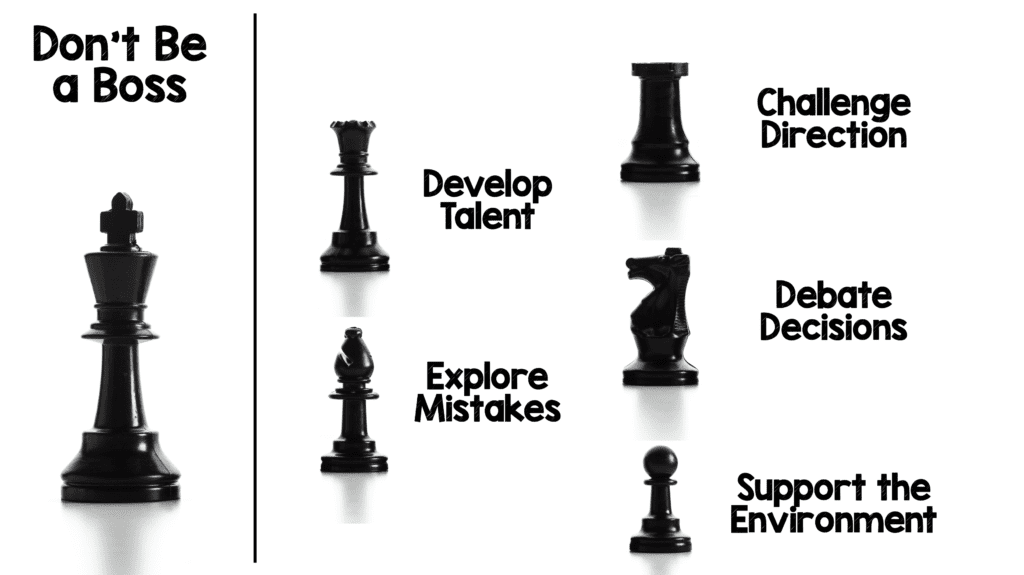Powerful Titles For Leaders: Unlock Your Leadership Potential
Are you ready to step into the world of powerful titles for leaders? Leadership isn’t just about having a fancy job title—it’s about owning a title that commands respect, inspires others, and reflects your true potential. Whether you’re climbing the corporate ladder or leading a small team, having the right title can make all the difference in how you’re perceived and how you perform. So, let’s dive into the art of crafting titles that truly resonate with authority and influence.
Let’s be real—titles matter. They’re not just labels; they’re statements. A powerful title doesn’t just tell people what you do—it tells them who you are as a leader. It shapes perceptions, defines roles, and sets expectations. In today’s competitive world, having a title that’s both meaningful and impactful can elevate your career in ways you might not have imagined.
This article is your ultimate guide to discovering, creating, and embracing powerful titles for leaders. We’ll explore everything from the psychology behind leadership titles to practical tips for choosing the perfect one. So, whether you’re looking to redefine your current role or step into a new leadership position, this is the place to be.
Read also:Is Owen Joyner Gay Unveiling The Truth Behind The Headlines
Why Powerful Titles Matter in Leadership
In the world of leadership, titles are more than just words—they’re symbols of authority, responsibility, and influence. A powerful title can inspire trust, motivate teams, and even attract opportunities. But why exactly do these titles matter so much? Let’s break it down:
- Perception is Everything: A strong title can shape how others perceive you. It sets the tone for how you’re approached and treated in professional settings.
- Clarity of Role: Titles help define your responsibilities and expectations. They communicate what you do and how you contribute to the organization’s success.
- Professional Credibility: A well-chosen title can enhance your credibility and authority, making you more influential in decision-making processes.
Think about it—would you rather work with someone titled "Manager" or "Chief Visionary Officer"? The latter sounds like someone who’s not just managing but shaping the future of the organization. That’s the power of a strong title.
Understanding the Psychology Behind Leadership Titles
Leadership titles aren’t just random words—they’re carefully crafted to evoke certain emotions and reactions. Understanding the psychology behind these titles can help you choose one that aligns with your leadership style and goals.
Emotional Impact: Titles like "Visionary," "Strategist," or "Trailblazer" evoke feelings of innovation and forward-thinking. On the other hand, titles like "Guardian" or "Protector" suggest stability and security. Knowing which emotions you want to inspire can guide your choice of title.
Perceived Authority: Certain words carry more weight than others. For example, "Chief" or "Director" often convey a higher level of authority compared to "Coordinator" or "Assistant." Consider the level of authority you want to project when selecting your title.
Key Traits of Powerful Titles
Not all titles are created equal. A truly powerful title for a leader should possess certain traits:
Read also:Kat Wonders Nude Pics A Comprehensive Look At The Truth Behind The Headlines
- Clear and Concise: It should be easy to understand and remember. Avoid overly complex or vague terms.
- Reflects Your Role: The title should accurately represent your responsibilities and contributions to the organization.
- Resonates with Your Audience: Consider the culture and values of your organization and audience when choosing a title.
For example, "Chief Innovation Officer" clearly communicates a focus on innovation, while "Team Catalyst" suggests someone who energizes and motivates others.
How to Choose the Right Title for You
Selecting the right title isn’t just about picking a word that sounds impressive—it’s about finding one that truly reflects who you are as a leader. Here’s how you can make the right choice:
Step 1: Define Your Leadership Style
Are you a visionary leader who thrives on big ideas, or are you more of a hands-on problem solver? Understanding your leadership style can help you choose a title that aligns with your strengths. For instance:
- If you’re a strategic thinker, consider titles like "Chief Strategist" or "Visionary Leader."
- If you’re more focused on execution and results, titles like "Operational Director" or "Performance Driver" might suit you better.
Step 2: Consider Your Goals
What do you want to achieve with your title? Are you aiming to inspire others, establish authority, or communicate a specific area of expertise? Your goals should guide your choice of title. For example:
- If your goal is to inspire, consider titles like "Chief Inspiration Officer" or "People Champion."
- If you’re focused on driving change, titles like "Transformation Leader" or "Change Catalyst" could be ideal.
Step 3: Align with Organizational Values
Your title should resonate with the values and culture of your organization. If your company emphasizes innovation, a title like "Chief Innovation Officer" would fit perfectly. If teamwork is a core value, consider titles like "Team Architect" or "Collaboration Director."
10 Powerful Titles for Leaders to Consider
Here’s a list of some of the most impactful titles for leaders across various industries:
- Chief Visionary Officer
- Strategic Growth Director
- People & Culture Champion
- Chief Transformation Officer
- Innovation Catalyst
- Operational Excellence Leader
- Chief Influence Officer
- Brand Ambassador Extraordinaire
- Change Architect
- Performance Optimizer
Each of these titles carries its own unique power and can be tailored to fit your specific leadership style and organizational context.
Long-Tail Keywords for Powerful Titles
When it comes to SEO, long-tail keywords can make a big difference in how your content is discovered. Here are some variations of "powerful titles for leaders" that you might consider:
- Leadership Titles That Inspire
- How to Create a Strong Leadership Title
- Best Leadership Titles for Your Career
- Impactful Titles for Modern Leaders
- Choosing the Perfect Leadership Title
These variations not only help with search engine optimization but also provide additional insights into the topic.
Real-Life Examples of Powerful Titles in Action
Let’s take a look at some real-life examples of leaders who’ve embraced powerful titles:
1. Tony Hsieh: Former CEO of Zappos, Tony Hsieh was known for his innovative approach to leadership. His title, "Chief Executive Officer," was straightforward but carried immense weight due to his reputation for customer service and company culture.
2. Sheryl Sandberg: As the COO of Facebook, Sheryl Sandberg’s title reflects her role in driving operational excellence and strategic growth for one of the world’s largest tech companies.
3. Elon Musk: With titles like "CEO of SpaceX" and "Chief Designer," Elon Musk’s leadership titles highlight his dual role as a business leader and technical expert.
Data and Statistics Supporting Powerful Titles
Research shows that titles matter more than you might think. According to a study by LinkedIn, professionals with more descriptive and impactful titles tend to receive more connection requests and engagement on their profiles. Additionally, a survey by Glassdoor found that employees who feel their titles accurately reflect their roles are more satisfied with their jobs.
These statistics underscore the importance of choosing a title that not only sounds good but also aligns with reality and resonates with others.
Common Mistakes to Avoid When Choosing a Title
While choosing a powerful title can elevate your leadership presence, there are some pitfalls to avoid:
- Overcomplicating: Avoid titles that are too long or complex. Simplicity is key.
- Understating: Don’t undersell yourself with a title that doesn’t fully capture your capabilities.
- Misalignment: Ensure your title aligns with your actual role and responsibilities. Misalignment can lead to confusion and mistrust.
Remember, your title should be a true reflection of who you are as a leader.
Conclusion: Embrace Your Title, Elevate Your Leadership
In conclusion, powerful titles for leaders are more than just words—they’re tools for shaping perception, defining roles, and inspiring others. By understanding the psychology behind titles, considering your leadership style, and aligning with organizational values, you can choose a title that truly resonates with your potential.
So, what are you waiting for? Take action today by rethinking your current title or exploring new possibilities. Share this article with your network, leave a comment with your favorite leadership title, and keep learning more about leadership and personal development.
Table of Contents
- Why Powerful Titles Matter in Leadership
- Understanding the Psychology Behind Leadership Titles
- Key Traits of Powerful Titles
- How to Choose the Right Title for You
- 10 Powerful Titles for Leaders to Consider
- Long-Tail Keywords for Powerful Titles
- Real-Life Examples of Powerful Titles in Action
- Data and Statistics Supporting Powerful Titles
- Common Mistakes to Avoid When Choosing a Title
- Conclusion: Embrace Your Title, Elevate Your Leadership
Article Recommendations


